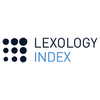One of Hasbro’s trade marks for its Monopoly board game has been invalidated for some of the goods and services it once covered, highlighting a danger with the practice of evergreening. Here, we explain the risks and what this means for brand owners.
What is evergreening?
In the UK and EU, the owners of trade marks that are over five years old can usually only enforce their rights if they can prove the mark has been put to genuine use for the goods and services for which it’s registered. This can be a costly and time-consuming exercise — so, to circumvent this requirement, many companies (typically those with deep pockets) engage in the filing practice of ‘evergreening’.
Evergreening involves the periodic re-filing of new trade mark applications for the same goods and services. This means that whenever a company needs to enforce its rights, the marks it relies on are less than five years old, avoiding the costly proof of use exercise.
Hasbro’s evergreening practices
Hasbro has engaged in this practice for its Monopoly board game trade mark. On 30 April 2010, Hasbro Inc filed an EU trade mark application for Monopoly covering goods and services in classes 9, 16, 28 and 41 of the Nice classification. This application registered on 25 March 2011. Hasbro is also the proprietor of three earlier EU registrations for Monopoly, each covering goods overlapping with the registration of 25 March 2011.
On 25 August 2015, a Croatian party — Kreativini Dogadaji d.o.o. — filed an application to invalidate the 2011 registration, alleging that Hasbro acted in bad faith when it filed the application to register the contested mark, on the grounds that the application was a repeat filing of the three earlier marks.
The EUIPO Cancellation Division rejected this invalidity application. However, on appeal to the second Board of Appeal of the EUIPO, the Cancellation Division’s decision was partially annulled and the contested mark was invalidated for some of the goods and services covered. Hasbro subsequently appealed to the General Court of the EU, which issued its decision on 21 April 2021.
General Court reverses burden of proof
In the decision, the General Court dismisses Hasbro’s appeal and confirms that the 2011 Monopoly registration is partially invalid (a further appeal to the Court of Justice of the EU (CJEU) is possible). Under the law of bad faith, the cancellation applicant (Kreativini Dogadaji) must prove that the registration was filed in bad faith. The good faith of the trade mark applicant (Hasbro) is presumed until proven otherwise.
However, in paragraph 44 of the decision, the General Court appears to reverse this burden of proof when it states:
The proprietor of the trade mark at issue is best placed to provide EUIPO with information regarding his or her intentions at the time of applying for registration of that mark and to provide it with evidence capable of convincing it that, in spite of the existence of objective circumstances, those intentions were legitimate (see, to that effect, judgment of 5 May 2017, PayPal v EUIPO – Hub Culture (VENMO), T‑132/16, not published, EU:T:2017:316, paragraphs 51 to 59, and, to that effect and by analogy, judgment of 9 November 2016, Birkenstock Sales v EUIPO (Representation of a pattern of wavy, crisscrossing lines), T‑579/14, EU:T:2016:650, paragraph 136).
Unfortunately for Hasbro, in its submissions in the earlier appeal to the Board of Appeal of the EUIPO, an employee admitted that “one of the advantages justifying the filing of the contested mark was based on the fact that it would not have to furnish proof of genuine use of that mark”. This is set out in paragraph 70 and appears to be (at least in part) the basis for the General Court’s decision.
The danger with evergreening
Unless the CJEU reverses this decision, it therefore appears that the practice of evergreening EU trade mark registrations might not have the desired effect for EU trade mark owners.
It’s now unlikely that any trade mark owner would admit the purpose of evergreening in future proceedings. However, it appears that placing a burden on the trade mark owner to prove its good intentions at the date of filing provides a basis for any party threatened with an evergreen mark to counterclaim for cancellation on grounds of bad faith.
The importance of record keeping
This decision therefore reinforces the need for trade mark owners to keep detailed records of trade mark use, which should (amongst other things) include:
- invoices
- packaging
- labels
- price lists
- catalogues
- photographs
- advertisements
- websites
Invoices are particularly useful when they are dated and have seller and buyer details showing that sales have occurred at a certain point in time in particular locations. The invoices should set out exactly which goods and services are being sold and these should be linked to references in dated catalogues if possible. Any online material should be dated and records should be kept as to how online materials are directed to customers in relevant countries, such as individual EU member states for EU registrations.
This places an administrative burden on trade mark owners that will likely be commonly overlooked. However, it should be a minimum requirement for any trade mark owner to maintain some form of records of use.
For tailored advice on protecting trade marks and keeping effective records of use, get in touch.





















